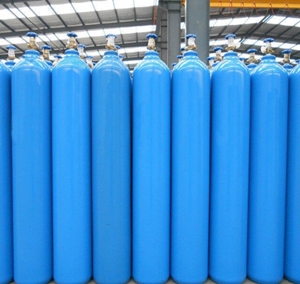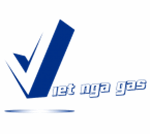
Are you looking to purchase hydrogen gas? Unsure where to find a reliable supplier? Viet Nga has been a trusted provider of industrial gases, including hydrogen, since 2016.
1. What is hydrogen gas?
Hydrogen is a chemical element with the symbol H and atomic number 1. It is the lightest element. Under standard conditions, hydrogen is a diatomic gas with the molecular formula H₂. This gas is colorless, odorless, tasteless, non-toxic, and highly flammable. Hydrogen is the most abundant chemical substance in the universe, accounting for approximately 75% of all normal matter. Stars like the Sun are primarily composed of hydrogen in the plasma state.
On Earth, most hydrogen exists in molecular form as water or in organic compounds. For its most common isotope (symbol ¹H), each atom has one proton, one electron, and no neutron.

2. Applications of hydrogen gas
Coolant: Hydrogen is commonly used in power plants as a cooling agent for generators due to favorable properties directly resulting from its lightweight diatomic molecules. These include low density, low viscosity, high specific heat, and the highest thermal conductivity of all gases.
Aerospace: Liquid hydrogen and liquid oxygen serve as cryogenic propellants for liquid-fueled rockets, such as in the Space Shuttle main engines.
Shielding gas: Hydrogen is used as a protective atmosphere in welding techniques such as atomic hydrogen welding.
Cryogenic research: Liquid H₂ is used in cryogenic studies, including superconductivity research.
Lifting gas: Due to its density being only 7% that of air, hydrogen was historically used as a lifting gas in balloons and airships.
Leak detection: Pure hydrogen or hydrogen mixed with nitrogen (sometimes called forming gas) serves as a tracer for detecting micro-leaks in industries such as automotive, chemical, power generation, aerospace, and telecommunications. Hydrogen is also an approved food additive (E949), used for packaging leak tests and providing antioxidant benefits.
Neutron moderation: Deuterium (hydrogen-2) is used as a moderator to slow down neutrons in nuclear fission applications.
Nuclear fusion fuel: Deuterium is utilized in nuclear fusion reactions.
Isotopic labeling: Deuterium compounds are used in chemistry and biology to study isotopic effects on reaction rates.
Rocket propellants: NASA has investigated atomic hydrogen-based propellants incorporating solidified molecular hydrogen particles suspended in liquid helium. Upon heating, the mixture vaporizes and recombines to release high thermal energy.
Tritium applications: Tritium (hydrogen-3), produced in nuclear reactors, is used in hydrogen bomb manufacturing, isotopic tracing in biological sciences, and as a beta-radiation source in luminescent paints for dials and emergency signage.
For inquiries or to purchase hydrogen gas or other industrial gases, contact Viet Nga for detailed consultation.



Create a free Listing to introduce your business and be visible to your potential customers
_________________________________
YELLOW PAGES CONTACT
+84 24.3636.9512 (Ext 312)
Hotline/ Zalo: +84 914 261 828 (Ms Amy)
